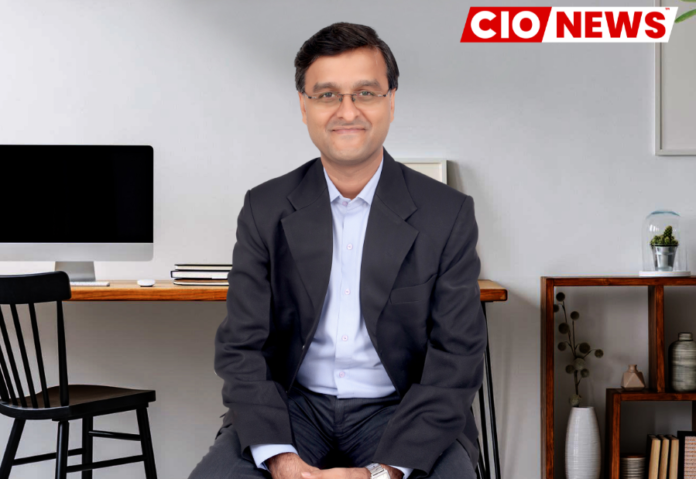A good delivery leader should have a comprehensive understanding of the industry’s evolving trends as well as its products, technology, people, processes, and performance.
This is an exclusive interview conducted by the Editor Team of CIO News with Hitesh Bajaj, Project Director at Infor
How did you plan your career path to be a successful Program and Delivery Leader?
The path towards excellence lies on multiple factors and facets – Defining clear goals and objectives, continually working towards those goals, and more importantly knowing what skills, qualities, and experience are needed to reach those goals.
With 20 years of professional experience, I have transitioned from a Software Developer in the early stages of my career to holding Management and Program Leadership positions. I have had the privilege of working with reputable brands and organizations such as Hexaware Technologies, Lehman Brothers, Hewlett-Packard, and currently with Infor. I hold a Bachelor’s degree in Engineering, an MBA in Finance from Texas A&M University in the US, and a Leadership Program at IIM Bangalore.
I place importance on continuous learning, acquiring new skills, taking on greater responsibilities, pursuing more demanding roles, and supporting the community I collaborate with. I strongly believe that pushing boundaries, showing persistence, and striving for excellence in all your pursuits are crucial qualities in realizing one’s aspirations.
What are the important areas to focus on in Delivery Management?
Delivery Management is both an Art and a Science. This combination is further complemented by one’s Intelligent Quotient (IQ), Emotional Quotient (EQ), and Networking Quotient (NQ).
In the present time, with businesses becoming increasingly interconnected and globalized, enterprises worldwide seek modern technology products that are straightforward yet impactful in enhancing their operational efficiency, productivity, market penetration, and reducing operational expenses. These business requirements prompt organizations to explore technologies such as Cloud computing, ERP, AI, Data Analytics, Automation, and Business Intelligence. The provision of intricate IT Solutions and Services demands expertise and attributes from both the Art and Science aspects of the field.
Art of Delivery Management
∙ Effective Delivery Management starts with the result in mind – and that is Customer Success. Keep Customer at the Centre of anything you do.
∙ One should be a Master in the art of working effectively and collaboratively with different teams and functions such as Sales, Consulting, Product, Support, R&D, Partners, Vendors, and Client stakeholders
∙ Possess great soft skills such as Leadership, People Management, Problem Solving, Communication, and Interpersonal
∙ Know that there will be varying situations on your delivery engagements and working cohesively as a team is so crucial
∙ As a Delivery Leader, one needs to be an Enabler who knows how to get things done in the right way while balancing the interests of both Customer and Service Provider
∙ Inspiring and motivating people to give their best while appreciating and rewarding the right talent
Science of Delivery Management
∙ Manage P&L Account, Budget, and Compliance of IT Programs
∙ Deliver Programs in line with Corporate Objectives – Strategic, Tactical, and Operational levels
∙ Participate in Pre-sales and Sales cycle and help in converting Prospect to a Customer
∙ Define KPI’s (Key Performance Indicators) and help the team achieving those KPI’s
∙ Help Project Managers to manage Scope, Schedule, Costs, Risks, Quality, and Resources
∙ Setting up the right Tools, Processes, Procedures, and Checkpoints to evaluate health of a Project or a Program.
What are the challenges faced by Delivery Leaders today while implementing digital technologies?
Today’s industries are undergoing tectonic transformations as a result of significant improvements in people skills, processes, technology, and data. Domain and digital knowledge keep growing as well. Keeping pace with fast evolving industry developments is a critical problem encountered by many delivery leaders today. Secondly, many delivery leaders fail to enable businesses with the right fitment of digital technologies. Even though technology is an enabler, businesses should ultimately be able to drive and prosper using the right technology. These gaps present various challenges for the delivery leaders.
How can Delivery Leaders overcome the challenges faced?
Delivery Leaders must have exposure to Industry, domain, and business knowledge to be successful in their role. They must place themselves in the shoes of customers and think about what value-add services their customers perceive to be important for their businesses. Proactive approach and futuristic thinking are the two most important skills a delivery leader must possess. They must also encourage a culture in which sharing prescriptive approaches and making business recommendations become the new norm.
Any best practices/industry trends/advice you would like to suggest to fellow Delivery Leaders for their successful professional journeys?
A good delivery leader should have a comprehensive understanding of the industry’s evolving trends as well as its products, technology, people, processes, and performance.
It is important to be able to manage various stakeholders while balancing the interests of your organization and the client, each of whom may have different priorities, interests, and objectives. Be agile, flexible, and adaptable in your delivery approach while leveraging lean delivery paradigm and methods. Form a strong team and inspire them. Establish a culture of perseverance, commitment, trust, and respect. Consider your Customer first in anything you do. You succeed when your Customers succeed.
Also read: The Road Ahead: Predictions for the Future Evolution of Artificial Intelligence
Do Follow: CIO News LinkedIn Account | CIO News Facebook | CIO News Youtube | CIO News Twitter
About us:
CIO News, a proprietary of Mercadeo, produces award-winning content and resources for IT leaders across any industry through print articles and recorded video interviews on topics in the technology sector such as Digital Transformation, Artificial Intelligence (AI), Machine Learning (ML), Cloud, Robotics, Cyber-security, Data, Analytics, SOC, SASE, among other technology topics.






